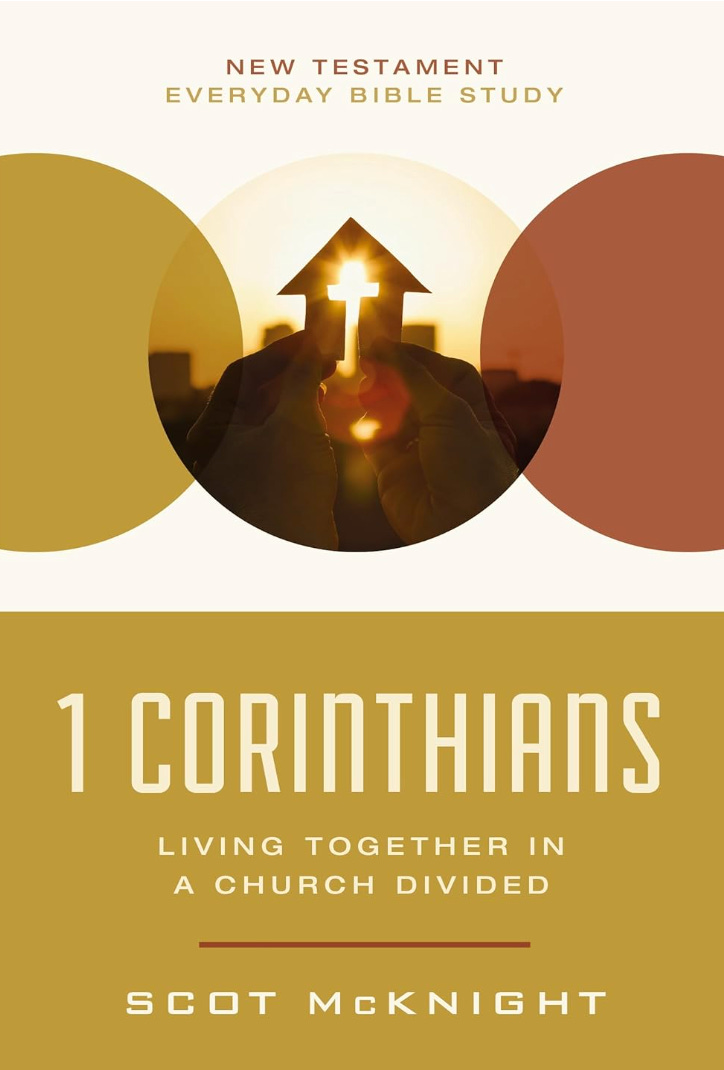From my forthcoming 1 Corinthians and 2 Corinthians in the Everyday Bible Studies.
Many remember vividly the experience of entering into a room as a leader, a speaker, a worship artist, or a workshop organizer knowing that some in the room don’t like you, don’t want you to be upfront, and don’t even want to be there. Yet you have to be there. It’s your job. Even what you are called to do. Paul was in that position often with the Corinthians. So he wrote this letter both to win over the Corinthians to continue as one of his mission churches, to hope they would become more spiritually formed (12:19), and to persuade the Corinthians that some recently arrived popular preachers were toxic (11:5-6). In his attempts to persuade them he trekked dangerously close to the steep cliff of defending himself too much.
Reading the Corinthian correspondence requires special sensitivities so this Introduction is a bit longer than the others in the Everyday Bible Study series. These two letters best fit the common description that goes like this: reading a letter of Paul is like sitting in a room with someone on the phone when all you can hear is one end of the conversation. And these two letters are not even always a conversation!
The heart of Paul
The Paul of the letters to the Corinthians is a vulnerable Paul with feelings and transparency. Read the following lines, mostly from 2 Corinthians, from Paul carefully. As you do, let your imagination seek an image of his face. What may have it looked like as he said these words, as his words matched his feelings, as he rehearsed his experiences and responses? You might not be able to resist as you read these verses of making the face you imagine he had. Go ahead, no one’s looking.
To this very hour we go hungry and thirsty, we are in rags, we are brutally treated, we are homeless (1 Corinthians 4:11).
… about the troubles we experienced in the province of Asia. We were under great pressure, far beyond our ability to endure, so that we despaired of life itself. Indeed, we felt we had received the sentence of death. But this happened that we might not rely on ourselves but on God, who raises the dead (2 Corinthians 1:8-9).
For I wrote you out of great distress and anguish of heart and with many tears, not to grieve you but to let you know the depth of my love for you. … Now when I went to Troas to preach the gospel of Christ and found that the Lord had opened a door for me, I still had no peace of mind, because I did not find my brother Titus there. So I said goodbye to them and went on to Macedonia (2:4, 12-13).
We are hard pressed on every side, but not crushed; perplexed, but not in despair; persecuted, but not abandoned; struck down, but not destroyed (4:8-9).
Make room for us in your hearts (7:2).
Besides everything else, I face daily the pressure of my concern for all the churches. Who is weak, and I do not feel weak? Who is led into sin, and I do not inwardly burn? (11:28-29)
Paul was no stiff. He was an emotional man who cared deeply whether the Corinthians liked him or not. Homeless and without food at times; tested to the limit in confronting a possible martyrdom; full of “distress and anguish of heart and with many tears”; unable to preach the gospel because of anxiety over news about the Corinthians; pleading with them to love him; and full of pressure about all his churches.
Is this the Paul you know and think about when you think of Paul? Lots of people make disparaging remarks about this man. I suspect they have not read him carefully enough. My own attitude toward Paul mirrors my attitude toward the pastors of our family and churches, the leaders I have known. I respect them; I disagree with them; I get irritated. But I know they love us, they are doing their best, and no pastor and no apostle is perfect. A recent email I read from a pastor mentioned having “1000 bosses.” Paul knew that experience, too.
In these two letters, 1 and 2 Corinthians, you will meet the real Paul. His relationship with the Corinthians was not a happy one. At least not all the time. He’s transparent about it, more than he even perhaps realized.
The context for Paul’s letters to the Corinthians
The relationship between the founding pastor, Paul, and the believers in Corinth shifted from their barely tolerating him to their virulent criticism of Paul. What Paul wrote, with a pen burning letters onto papyri in our second letter to the Corinthians, gives us more than a glimpse of what the Corinthians, or at least some vocal critics, thought of Paul. In 2 Corinthians 10-13 Paul provides X/Twitter-like (very critical) clips of their criticisms of the apostle. (One of my students told me she gets on X/Twitter only to get angry.) To read Paul’s criticisms of someone else’s criticisms himself is not always the easiest way to figure out the criticisms! We are not always reliable reporter when we describe what others think of us.
Take 2 Corinthians 10:1 as an example. Here Paul writes “I, Paul, who am ‘timid’ when face to face with you, but ‘bold’ toward you when away!” The NIV puts timid and bold in quotations because the translators think Paul is quoting the words of the Corinthians. I agree. These words reveal that they accused Paul of being a milquetoast lightweight people-pleaser when present in Corinth in their house churches but once he got back to Ephesus he turned up the harsh tones of his opinions. A second example sounds like the Corinthians thought Paul’s physical appearance did not stand up to their idea of a man with such rhetorical and social power: “You are judging by appearances” (10:7). Another indicates they thought he was unpolished and untrained as a public speaker: “his speaking amounts to nothing” (10:10; see 11:5). People-pleasing, unmanly, weak preacher. Not exactly the words you want to read in your Inbox when you wake up.






Dr. McKnight - thanks for this post - really good and helpful in understanding Paul in Scriptural context. I've been working through N.T. Wright's biography of Paul. It is helpful in so many way as well giving context.
Thank you